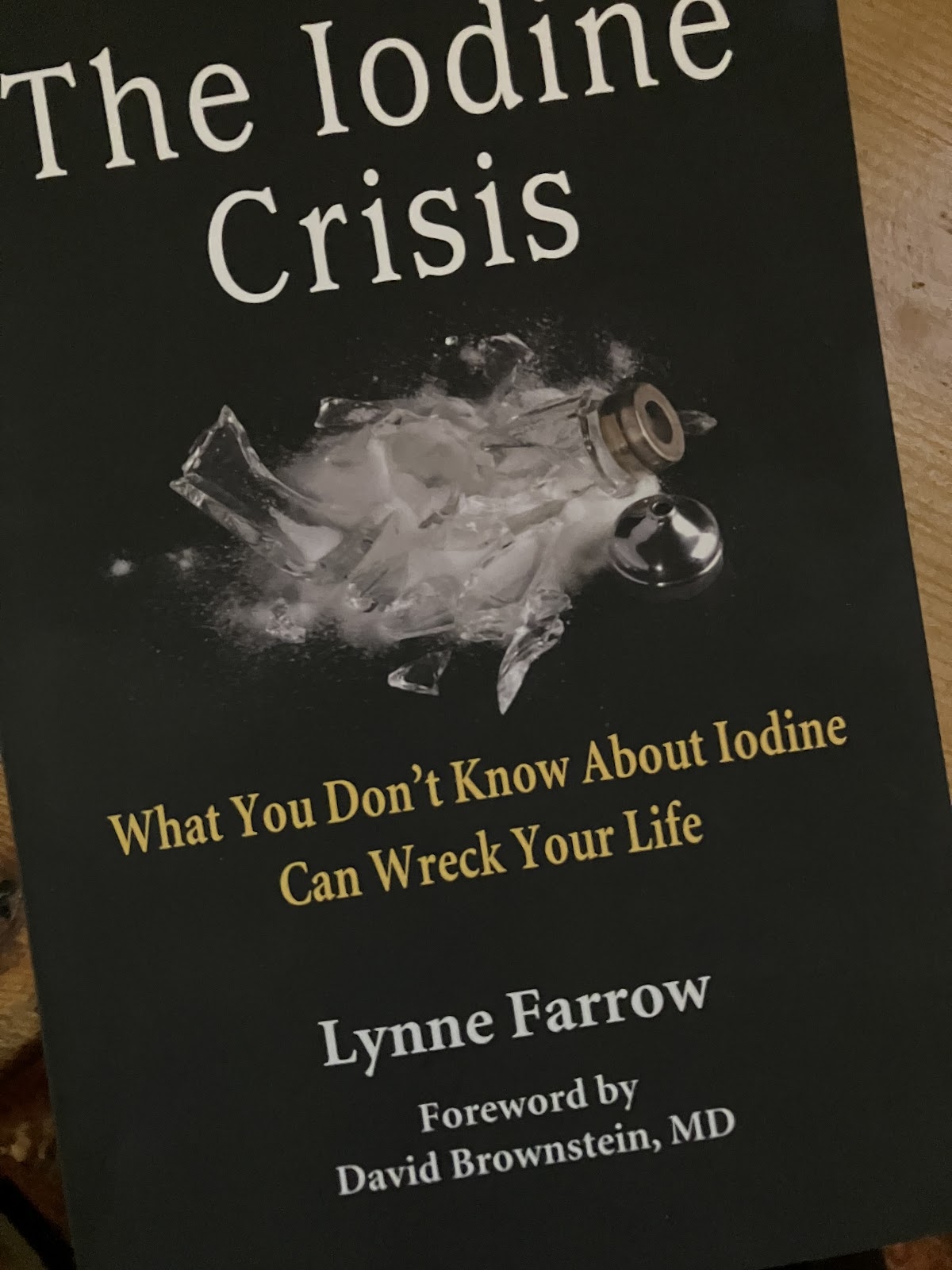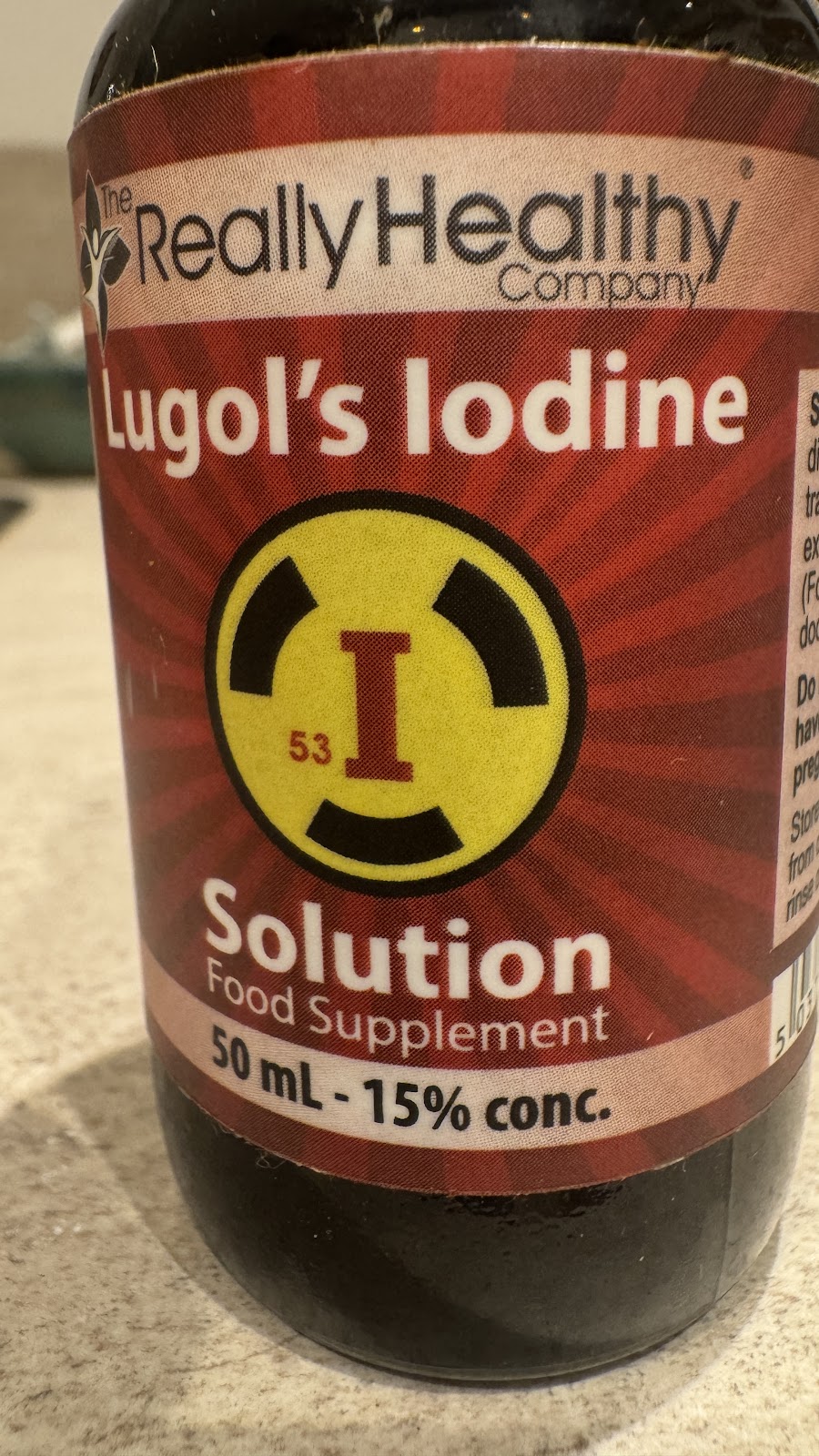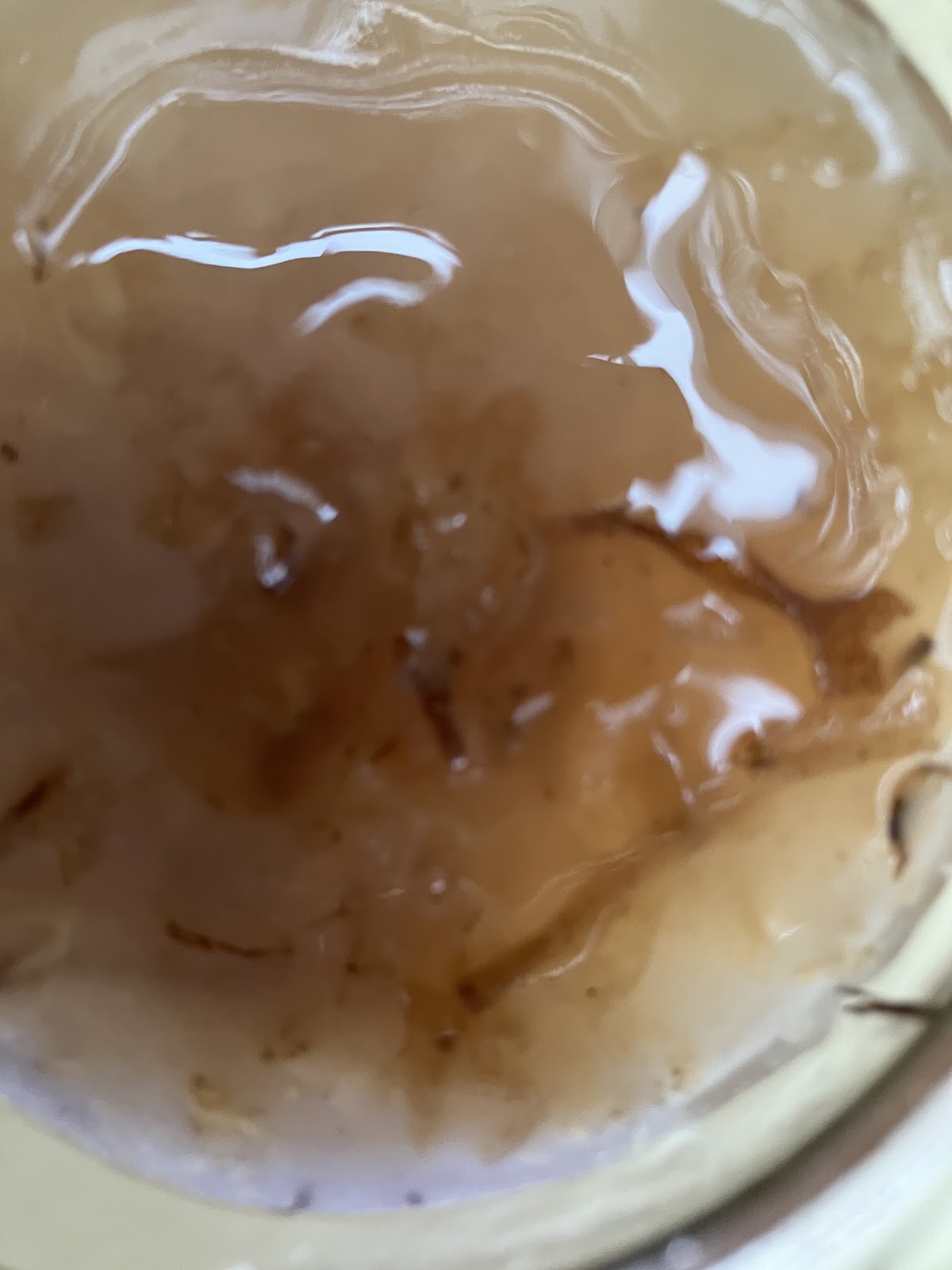The book goes onto suggest a possible causal link that “decreased iodine consumption corresponds with the dramatic rise in breast cancer, prostate cancer and thyroid disease.” It also has a huge number of personal ‘iodine stories’ about the wonders of iodine; this maybe useful to some but I am always a little wary of lists of personal stories, preferring more the research - having said that the book also covers some of the research.
Back in early 2019 I had a urine Iodine test with Genova that showed 15 ug/L (0.12 umol/L). This was considered very low by some nutritionists who say that less than 20 is severe deficiency. However there are disagreements among scientists about what are correct levels. Indeed in Japan it has been shown that they may well be having 100 times higher rates of iodine in their diet than the West!
Back in 2019, as I noted in this blog, I did supplement with Lugol’s solution; this has the two types of iodine that the body uses and it was used with people around Chernobyl after the disaster.
When I re-tested the iodine in 2020 I was just over normal levels so stopped supplementation and used occasional seaweed flakes - more of that in a mo. Certainly all practitioners say you need to test to check iodine levels before supplementing. Interestingly following radiation treatment a hair analysis (a technique that some dismiss as inaccurate or even bogus) in December 2021 showed low levels again of iodine. I don’t seem to have got to grips with how much to take and would in retrospect have considered increasing iodine intake during and after radiation.
In that earlier 2019 blog I quoted a doctor, Michael B. Schachter, saying, “Iodine may be needed in individualized doses to improve thyroid function, immune function, and the optimal functioning of all the cells in the body; several associated nutrients need to be given including vitamin C, selenium, magnesium, unrefined salt, and sufficient water; these help to prevent strong detoxification reactions as a result of the release of bromine from the tissues when iodine is given in milligram quantities. These higher milligram doses rather than microgram doses help to enhance anti-cancer functions in most if not all cancers, but certainly in cancers of the thyroid, breast, ovary, and prostate.”
Iodine kills cancer cells
The Canceractive website notes: “Research studies show that iodine can kill cancer cells and cancer stem cells, improve the oxygenation of cells, improve metabolic function and enhance the immune system in its search for rogue and pre-cancer cells. 88% of people have been shown to be seriously deficient in iodine on cancer diagnosis. Having good iodine levels can reduce pathogen levels, and lower the risk of anaemia. Importantly, it can upregulate an inactive p53 gene so that it causes cancer cell death. Iodine deficiency is known to cause pre-cancerous fibrocystic disease, which can lead to breast cancer. Iodine supplementation can maintain breast health. Prostate cancer and colorectal cancer patients have also clear and recorded benefits from the supplementation of iodine”. Read more including references to research in Canceractive’s January 2024 article: https://www.canceractive.com/article/iodine-and-cancer
Thyroid disease is associated with an increased prostate cancer risk. A healthy prostate will have a concentration of Iodine according to a Canadian study; it was found that there were 29% less prostate cases in the group with high iodine, when compared with those men with low iodine. While other research has shown that prostate cancer cells take up iodine easily and it can cause apoptosis. Yay!
Why iodine depletion?
There is a short chapter in Lynne Farrow’s book looking at the role of the iodine-blocking element bromine and how it has ‘purged iodine from our bodies’. Bromine is found in pesticides, fire retardants, plastic packaging, drugs, some baked products and soft drinks. Bromides are also now added to flour; whereas iodine was added to bread prior to the 1980s.
Fluoridation and chlorine both displace iodine in the body – so our water supplies can deplete levels along with toothpaste, mouthwash and more. Lastly soil depletion’s meant lower levels of iodine and we also now consume less iodine-rich foods like prawns, sea fish, eggs and iodised salt.
Well it seems to me that we must test before supplementation with iodine using for example Lugol’s or Nascent Iodine - also of course check with your Oncology team.
The other option is seaweed. One of the challenges is to get pure and heavy metal free seaweeds that don’t come from near Fukushima. Some Sea Kelp does come in tablet form but again I would be wary of over-dosing. I use Dulse and other seaweed flakes - adding them to stews, soups and more. However after revisiting this topic I will try to use it a bit more often!
Sea Moss
This seaweed is sometimes referred to as Irish Moss although several websites distinguish between the two. The Irish is more rare and allegedly has similar but slightly more health benefits.
Sea Moss, according to conversations I’ve had here in Gloucestershire, seems to have been used in African Caribbean communities in relation to cancer; it is found along the rocky coasts of the Caribbean and has been used there in traditional medicine for centuries. It is an edible red seaweed and it is said can have 92 out of the 102 vitamins and minerals the body needs to function! It is said Sea Moss is packed with cancer-fighting nutrients, including antioxidants, fucoxanthin, polyphenols, and others. One of those nutrients is iodine and this may well also explain it’s benefit.
Organic Nature’s blog summarises the research re prostate cancer: “Sea moss and other seaweeds are excellent for men's health. They're a rich source of zinc, an essential mineral for the prostate to function correctly. Besides, sea moss's natural anti-inflammatory properties participate in reducing inflammation of the prostate. Ultimately, by improving male prostate health and function, sea moss may help reduce the occurrence of prostate cancers in men. Current investigation about the anti-prostate cancer properties of marine-derived compounds confirms that “marine species are unique and have great potential for the discovery of anti-cancer drugs.’”
As a final point on Sea Moss and seaweeds it is important to say research is very limited and iodine levels vary widely so it is hard too assess what might be a safe ‘dose’ - and clearly would not be safe for some people like those with hypothyroidism. Get advice!
Carrageenan concerns
Carrageenan is derived from red algae or seaweeds and is widely used in the food industry - however it is surrounded by controversy. There are many who consider that it is itself a health risk and indeed I personally make a point of avoiding it in foods. One example is that it is often in non-dairy milks - check out Plenish as they don’t use it and only keep to as few ingredients as possible.
I mention Carrageenan here as it is often confused with Sea Moss but they are not the same. Check out this blog that explains why: https://www.organicsnature.co/blogs/news/carrageenan-in-sea-moss-safety
Read more here re Carrageenan: https://draxe.com/nutrition/what-is-carrageenan/
Here’s Dr Gregor on seaweed and treats cancer: https://nutritionfacts.org/video/which-seaweed-is-most-protective-against-breast-cancer/
Phew another blog that became much longer than intended! To finish here’s a 4minute film from ten years ago looking at this issue with Dr David Brownstein, author of “Iodine: Why You Need It. Why You Can't Live Without It” which is now in it’s fifth edition: https://www.youtube.com/watch?v=c8Y800-xEXU















